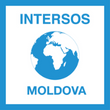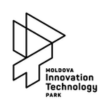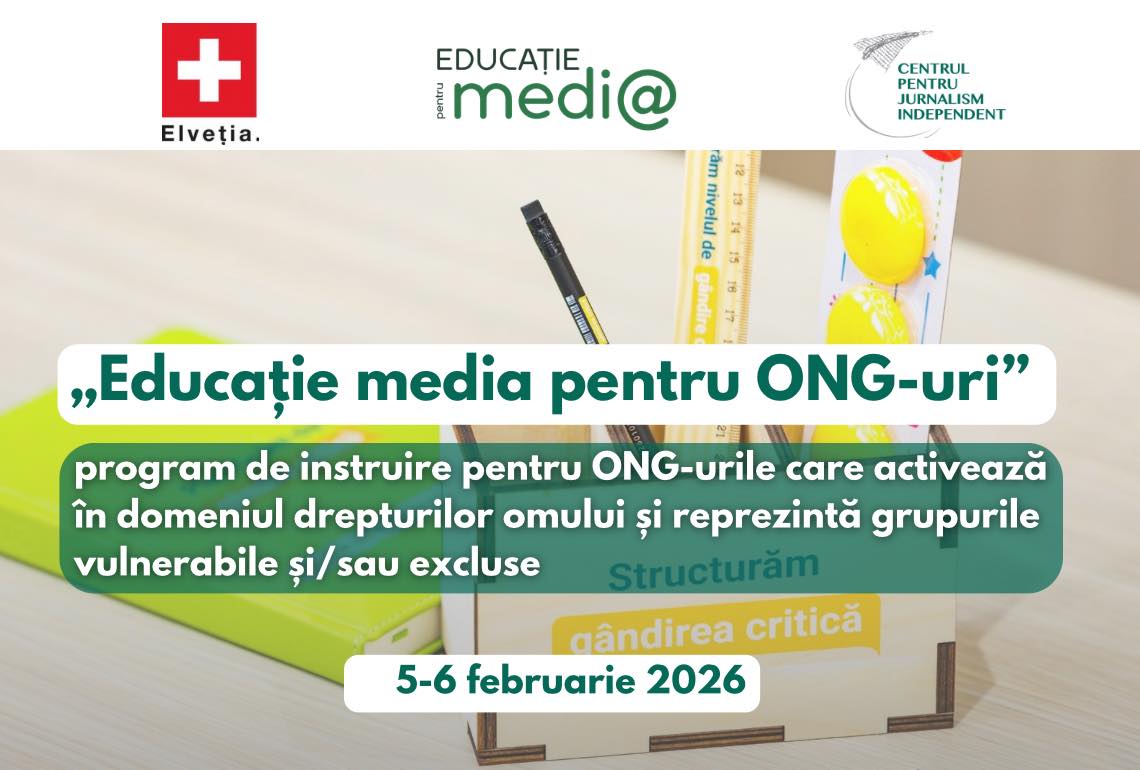Anunțuri de Angajare
- Detalii
- Categorie: Angajări
FPI/International Consultant to support in designing/development of the concept of financing mechanisms in a gender-sensitive manner for implementation of EE and RES measures
Informațiile prezentate în articolul de mai jos pot să nu mai fie actuale sau să nu mai reflecte activitățile și programele curente. Anunțul este păstrat în arhivă pentru a asigura transparența și accesul public la informațiile despre inițiativele și proiectele implementate anterior.
Vacancy Number: Pr22/02648
| Location: | Chisinau, Moldova |
| Application Deadline: | 27 Dec 2022, 16:30 (GMT+2:00) |
| Type of Contract: | Individual Contract |
| Starting date: | 02 Jan 2023 |
| Reference to the project: | Energy Security/FPI |
| Expected Duration of Assignment: | January 2023 – April 2023 (the estimated total amount of work is 30 w.d. |
| Supporting Documents: Terms of Reference Procurement Notice OFFEROR’S LETTER TO UNDP CONFIRMING INTEREST AND AVAILABILITY FOR THE INDIVIDUAL CONTRACTOR (IC) ASSIGNMENT UNDP General Conditions of Individual Contract |
|
Contacts:
Mr. Mihail Lupu.
Background
Moldova is part of the EU’s European Neighborhood Policy (ENP) and in the Eastern Partnership framework, which aims at strengthening individual and regional relationships between the EU and countries in its neighborhood. Moldova is also part of the Energy Community Treaty since 2010 and has signed the Association Agreement with EU in June 2014, including the DCFTA which entered into force in 2016. As a follow-up, Moldova is required to ensure transposition of the EU acquis Communautaire, which underpins the EU energy legislation on electricity, gas, oil, renewables, efficacity and environment. The country is planning to fully synchronize its electricity network with the ENTSO-E to connect to European electricity market.
The energy sector is one of the top priorities for the Government and it is addressed in Government’s Plans and several policy documents, laws, and regulations. The most important are the following: the draft National Development Strategy 2030, the National Energy Strategy 2030, Law on energy, Law on electricity, Law on promoting use of energy from renewable sources, Law on natural gas, Law on energy efficiency, Law on the energy performance of buildings, Law on the labelling of products with energy impact, Law on eco-design requirements for energy-related products, as well as a list of secondary legislation, meant necessary to ensure the implementation of the primary legislation.
In accordance with the existing strategic planning documents, one of the main priorities of the Government is to diversify the energy mix with more renewable energy, which is also fully in line with commitments under the EU Clean Energy for all Europeans packages. Achieving this goal will require significant investment in the medium and long term, but also the country’s ability to attract and absorb the funds. The development of renewables, such as wind and solar, will also depend on improving the balancing capabilities of the Moldovan power system and its integration with neighboring countries.
Starting with October 2021, Moldova a faced significant crisis in the gas sector, which outlined the need to undertake more actions towards improving energy security of the Republic of Moldova, both in the natural gas and electricity sectors.
To enhance security of energy supply, Moldovan authorities are seeking various ways to diversify gas and electricity supply, to strengthen its energy security and enabling a transparent, fully open, and well-functioning energy market.
The acute gas supply crisis in Moldova has also been subject of discussions within the Moldova-EU Association Council meeting on October 28, 2021. The EU and Moldova stressed the importance of resilience against any potential efforts by third parties to use energy as a geopolitical lever. The Association Council recalled the importance of continued energy market reform to strengthen competition and transparency in this sector. The EU has urged Moldova to ensure that the energy sector reform demonstrates full respect of the Energy Community acquis and is in line with the EU Third Energy Package. The EU side confirmed its support to the objective of Moldova to synchronize its electricity network with the Continental European Network (CEN), an important step towards the integration into the EU energy system and market.
Under these circumstances, the Government of Moldova will be assisted to tackle the current energy crisis and energy poverty and addressing prioritized systemic elements in the energy sector to cope with potential future energy crisis. In partnership with EU, UNDP Moldova will therefore, support the Government of Moldova:
- To tackle the current energy crisis and energy poverty, and address prioritized systemic elements in the energy sector to cope with potential future energy crisis;
- To build its capacities towards strengthening the national energy security, as well as in improving the legal and regulatory framework and operationalizing specific rapid large-scale interventions to tackle energy poverty and support the most vulnerable and affected groups of population and businesses.
The Programme duration is envisaged between 2022 – 2023 with support from Foreign Policy Instrument (herewith FPI) of EU.
Scope of work
The reform of the Energy Efficiency Agency (EEA) has been initiated recently. Strengthening the Agency’s institutional capacities is one of the reform’s cornerstones; one of its main objectives is to develop a clear vision for the financing of projects in the field of EE and RES in different sectors of the national economy. A specific concept regarding possible mechanisms that would attract external funding for these projects in the different sectors will be an essential component of the Agency’s strategic planning.
In this regard, selected International Consultant will elaborate financing mechanisms concept for implementation of energy efficiency measures and promotion of renewable energy sources in line with the establishment through different programs/projects within the sectors of the national economy, including the public, social and other sectors.
The International Consultant will work in a team with a National Consultant and will take the lead in producing and finalizing the deliverables, based on the methodological approach and of a detailed action plan that shall be developed at the start of the activities, and which shall be agreed with the local public partners and approved by the Programme.
The following institutions are proposed to be consulted during this assignment:
- Energy Efficiency Agency http://aee.md/;
- Ministry of Infrastructure and Regional Development;
- Ministry of Labor and Social Protection;
- National and international NGO’s that promote implementation of EE measures and use of RES;
- Commercial suppliers in the field of EE and RES.
For the current assignment, the International Consultant shall be responsible for implementing the following tasks:
- Conducting a desk review on existing international best practices regarding incentivizing financing mechanisms in the energy sector (specifically in implementing EE measures and promoting RES in different sectors: residential, industrial, private, etc.);
- Designing gender-sensitive financing mechanisms that will include operational procedures, regulations, risk analysis and identification of target groups to reduce energy consumption and promote renewable sources;
- Establishment, in collaboration with the specialists of the Energy Efficiency Agency and with the National Consultant, the concept of financing mechanisms for implementation of EE measures and promotion of RES for the different sectorsincluding residential (both single-family houses and multi-apartments buildings). These mechanisms will be in line with the establishment of Energy Efficiency Policy, as a result of the EEA reform. The elaborated mechanisms will be compliant with national legislation regarding incentivizing financing mechanisms for individuals, business organizations and other types of organizations. The final version of the proposal will be agreed with the Energy Efficiency Agency and approved by the Programme. The proposed financing mechanisms will be developed considering the Energy Vulnerability Fund and other Funds in the sector.
- While developing the financing mechanisms, the consultant will take into account the following legal documents and bibliographical sources:
- Law no. 139 of 2018 on energy efficiency;
- Law no. 128 of 2014 on energy performance of buildings (modified in 2022);
- Law no. 241 of 28-07-2022 on Energy Vulnerability Reduction Fund;
- Law no. 10 of 2016 on promotion of use of energy from renewable sources (modified in 2022);
- Regulation on the assignment of categories of energy vulnerability and the method of establishing and paying compensations for paying energy bills (in process of approval);
- Energy Strategy of the Republic of Moldova until 2030;
- International best practices in the fields of EE and RES.
- Elaboration of a Final Report for the assignment, presenting the final version of the elaborated financing mechanisms.
Requirements for experience
1) Academic Qualifications:
- University degree in finance, economics, law, energy, energy efficiency, renewable energy sources or other related areas.
2) Experience and knowledge:
- Minimum 5 years of relevant professional experience in the energy sector, energy efficiency and promotion of renewable energy sources. Proven experience in post-Soviet countries is an advantage;
- Proven experience in elaborating programmes, policy documents and/or financing mechanisms in the fields of energy efficiency and renewable energy sources;
- One internationally developed financing mechanism in the energy field (energy efficiency, renewable energy sources, etc.) for public, private institutions or other sectors;
- Proven experience in elaboration of operation procedures, risk analyses or internal regulations;
- Advanced research skills and capacity to produce analyses using quantitative and qualitative data;
- Previous experience in development assistance or related work for a donor organization, development partners, UN Agencies would be an advantage;
- Fluency in written and spoken English is required for this assignment. Good level of Romanian will be an advantage.
The UNDP Moldova is committed to the workforce diversity. Women, persons with disabilities, Roma and other ethnic or religious minorities, persons living with HIV, as well as refugees and other non-citizens legally entitled to work in the Republic of Moldova, are particularly encouraged to apply.
Documents to be included
Interested local consultants must submit the following documents/information to demonstrate their qualifications:
- OFFEROR’S LETTER TO UNDP CONFIRMING INTEREST AND AVAILABILITY FOR THE INDIVIDUAL CONTRACTOR (IC) ASSIGNMENT ;
- CV shall include Education/Qualification, Processional Certification, Employment Records /Experience and three names for a reference check;
- Proposal, explaining why he/she is most suitable for the assignment, including experience in similar assignments, providing a brief information on above qualifications, and brief methodology on how he/she will approach and conduct the work.
Note: The offer will also include the transport expenses predestined for the visits in the Republic of Moldova on request.
Important notice:
The applicants who have the statute of Government Official / Public Servant prior to appointment will be asked to submit the following documentation:
- a no-objection letter in respect of the applicant received from the Government, and;
- the applicant is certified in writing by the Government to be on official leave without pay for the entire duration of the Individual Contract.
A retired government official is not considered in this case a government official, and as such, may be contracted.
Financial proposal
The financial proposal shall specify a total lump sum amount, and payment terms around specific and measurable (qualitative and quantitative) deliverables (i.e., whether payments fall in installments or upon completion of the entire contract). Payments are based upon output, i.e., upon delivery of the services specified in the TOR. In order to assist the requesting unit in the comparison of financial proposals, the financial proposal will include a breakdown of this lump sum amount (including fees, taxes, travel costs, accommodation costs, communication, and number of anticipated working days)
- Agenția de Guvernare Electronică relansează concursul de angajare pentru suplinirea postului vacant de Dezvoltator software (Swift developer)
- BNM angajează expert/ă principal/ă în metodologie de raportare
- Agenția de Guvernare Electronică anunță concurs de angajare pentru suplinirea postului vacant de specialist(ă) în testarea de software (QA specialist)
- Fundația pentru Dezvoltare din Moldova angajează Coordonator/Coordonatoare de proiect
- Specialist/ă Audit Intern
Angajări pe Telegram
Nu pierdeți niciun anunț de angajare postat pe site! Urmăriți Canalul dedicat pe Telegram:

Top organizatii
- Delegația Uniunii Europene (UE)
- Ambasada SUA
- Fundatia Soros-Moldova
- Centrul pentru Jurnalism Independent (CJI)
- Asociația Promo-LEX
- Fundatia Est-Europeană
- Asociatia Presei Independente (API)
- Institutul pentru Politici și Reforme Europene (IPRE)
- Deutsche Gesellschaft für Internationale Zusammenarbeit (GIZ)
- IDIS Viitorul
2025 CIVIC DIGITAL SOLUTIONS
Email: support@portal.civic.md









